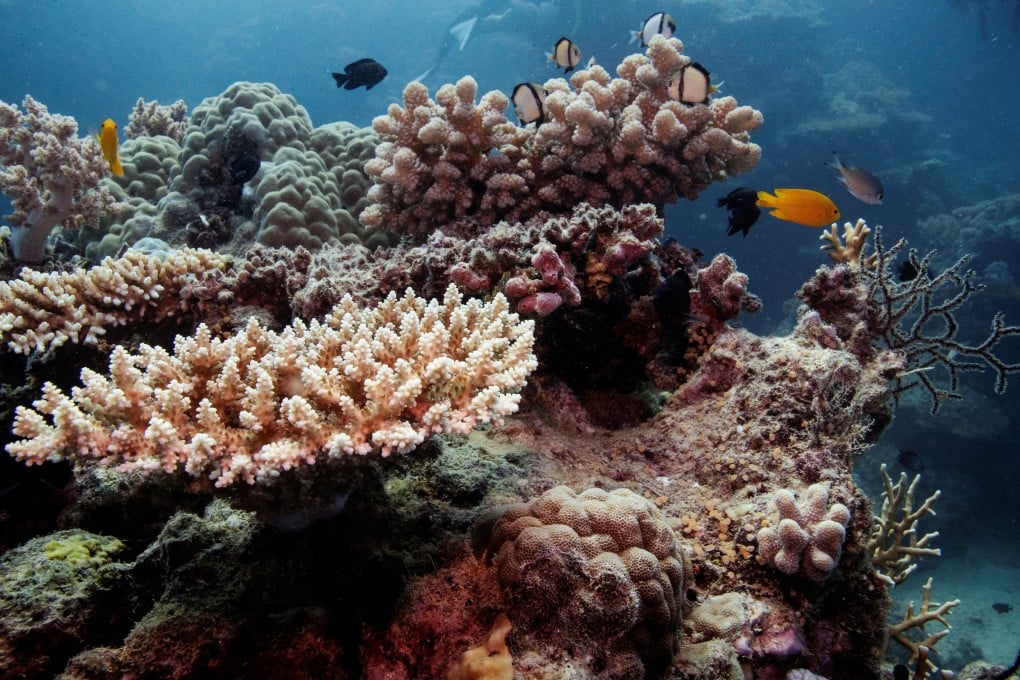Opinion | As marine life flees to cooler waters due to global warming, history warns this could lead to mass extinction
- Equatorial waters are already too hot for many species to survive, with potentially profound implications for marine ecosystems and human livelihoods
- When the same thing happened 252 million years ago, 90 per cent of all marine species died – but we can take actions to mitigate the effects of climate change

The tropical water at the equator is renowned for having the richest diversity of marine life on Earth, with vibrant coral reefs and large aggregations of tunas, sea turtles, manta rays and whale sharks. The number of marine species naturally tapers off as you head towards the poles.
In other words, the global pattern is rapidly changing. And as species flee to cooler water towards the poles, it’s likely to have profound implications for marine ecosystems and human livelihoods. When the same thing happened 252 million years ago, 90 per cent of all marine species died.
THE BELL CURVE IS WARPING DANGEROUSLY
This global pattern – where the number of species starts lower at the poles and peaks at the equator – results in a bell-shaped gradient of species richness. We looked at distribution records for nearly 50,000 marine species collected since 1955 and found a growing dip over time in this bell shape.
So, as our oceans warm, species have tracked their preferred temperatures by moving towards the poles. Although the warming at the equator of 0.6℃ over the past 50 years is relatively modest compared with warming at higher latitudes, tropical species have to move further to remain in their thermal niche compared with species elsewhere.
As ocean warming has accelerated over recent decades due to climate change, the dip around at the equator has deepened.
